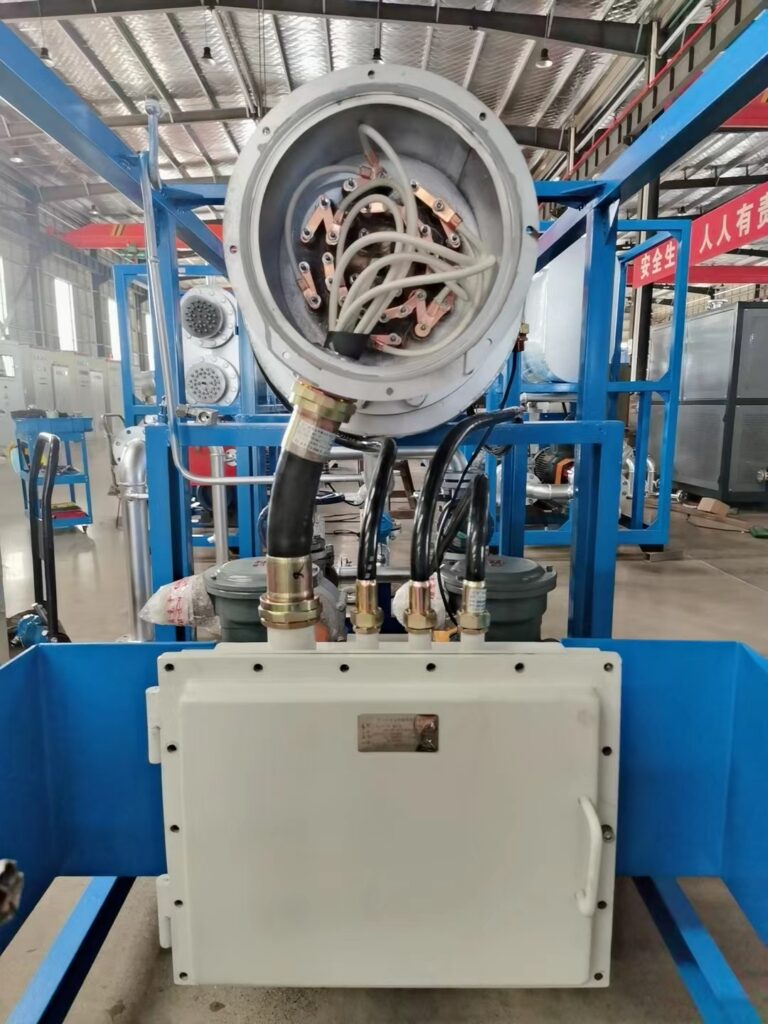Proper maintenance is the key to ensuring the safe and efficient operation of thermal oil boilers. As heat transfer oil boilers play an important role in industrial production, good maintenance not only extends the life of the equipment, but also improves the overall efficiency of the system, reduces the failure rate, and ensures the smooth running of the production process. In this article, we will detail the key points of maintenance for thermal oil boilers, including best practices for routine inspections, analysis of heat carrier oil, and burner maintenance.

Maintenance points of heat transfer oil boiler
1. regular inspection
Regular inspections are an important part of thermal oil boiler maintenance to ensure that the boiler components are in good condition. Regular inspections can help identify potential failure hazards in a timely manner and take preventative measures to avoid more serious problems.
Inspection items::
- leak detection: Check boilers, pipes and valves for oil or gas leaks. Repairing leaks in a timely manner prevents waste of heat carrier oil while avoiding possible safety hazards.
- Wear inspection: Check for wear and tear on various parts of the boiler, such as worn pumps and deteriorated valves. Worn parts may affect the operating efficiency of the boiler if they are not replaced in a timely manner.
- Hot carrier oil quality check: Check the heat carrier oil for contaminants or ageing. The quality of the heat carrier oil directly affects the heat transfer effect of the boiler, so you need to check its viscosity, acid value and other indicators regularly.
Regular inspections should also include a check of the external surfaces of the boiler to ensure that there is no accumulation of dust, oil or other substances on the outside of the unit that could affect the cooling effect.
2. Hot carrier oil analysis
Heat carrier oil is the core medium of the heat transfer oil boiler, ensuring the quality of the heat carrier oil is the key to ensure the efficient operation of the boiler. The heat carrier oil will be gradually contaminated with the use of a long time, there may be oxidation, acidification, excessive impurities and other problems, which will affect the thermal efficiency and safety of the boiler.
Content of periodic analyses::
- Acid value test: Heat carrier oils are prone to oxidisation at high temperatures to produce acids, leading to acidification of the oil. Excessive acid value will corrode the metal parts inside the boiler, so it is necessary to test the acid value regularly and replace the oil in time.
- Viscosity Test: The viscosity of heat carrier oil increases with time of use, and excessive viscosity can affect the efficiency of the oil pump and increase power consumption. Therefore, it is vital to check the viscosity of the oil regularly to ensure that it remains within normal limits.
- Impurity analysis: Moisture, metallic impurities or other contaminants may be present in the oil, which can cause the oil's heat transfer performance to deteriorate and affect the normal operation of the system. Regular filtration and replacement of the oil to maintain its cleanliness will help to extend the service life of the boiler.
3. Burner Maintenance
The burner is one of the core components of the boiler, and its maintenance is directly related to the combustion efficiency and operational stability of the boiler. Good burner condition can improve fuel combustion efficiency, reduce emission pollution and save energy at the same time.
Burner Maintenance Points::
- Clean burners: Burners accumulate coal dust, oil and other impurities during long-term operation, which can affect the combustion effect of the burner. Regular cleaning of the burner ensures that it works properly and improves combustion efficiency.
- Burner Calibration: Calibration of burners is essential to improve combustion efficiency. Ensuring the proper air to fuel ratio and complete combustion not only saves energy but also reduces emissions.
- Checking the flame condition: Check whether the burner flame is stable and whether there are signs of incomplete combustion. If any abnormality is found, the working parameters of the burner should be adjusted or damaged parts should be replaced in time.
4. System piping and valve maintenance
The pipework and valves of a boiler system are key components in the transfer of heat carrier oil. Damage to any of the piping or valves will affect the normal operation of the system and may even lead to safety accidents.
Pipe and Valve Maintenance Essentials::
- Inspection of pipe insulation: Check that the pipework insulation is in good condition. If the insulation is broken or deteriorated, this can lead to heat loss, thus reducing the efficiency of the system.
- Cleaning pipes: Regularly clean the inside of boiler tubes of accumulated scale and impurities. Dirt on the inside of the pipework can lead to poor heat transfer and reduce the efficiency of the boiler. Piping can be cleaned by chemical or physical cleaning.
- Check valve function: Check system valves for flexibility and leaks. Deteriorated or worn valves can lead to unstable system pressure, which can affect the safety of the boiler.
5. Regularly check safety valves and pressure gauges
As a high-temperature device, the heat transfer oil boiler must ensure that the pressure and temperature in the system are stable. Regularly check the safety valves and pressure gauges to ensure that they function properly and can release excess pressure in time to prevent safety accidents.
Inspection content::
- safety valves: Check that the safety valves are flexible and can open automatically when the pressure is too high. Regularly calibrate the safety valve to ensure that its performance meets the standard.
- pressure gauge: Check the accuracy of pressure gauge readings to ensure that pressure is maintained within safe limits during system operation.
The company can be non-standard custom products, click the menu bar to contact us to customise, you can also refer to the product page to appreciate the company's products Oh!
Recommended Reading:
